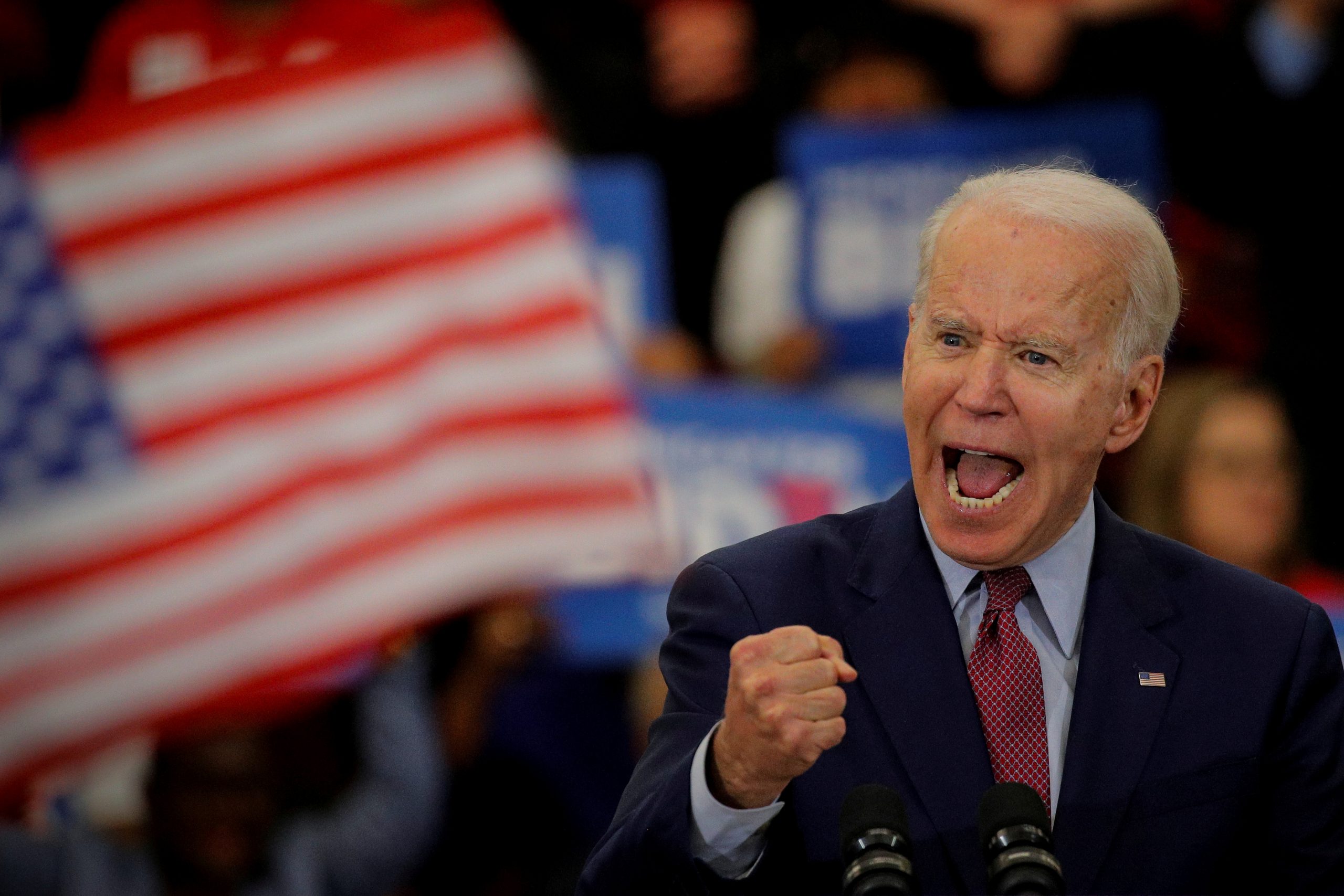Joe Biden hopes to take a big step toward the Democratic presidential nomination on Tuesday when six states cast votes, while Bernie Sanders aims for an upset win in Michigan that would keep his White House hopes alive.
Biden, who claimed the position of Democratic front-runner with a sweeping series of wins last week in Super Tuesday nominating contests, could build a formidable lead in the race to pick a challenger to President Donald Trump with another round of decisive victories.
The biggest showdown between Biden and Sanders will take place in Michigan, a political battleground where Sanders sprang a stunning 2016 upset over Hillary Clinton that ensured a long nominating fight – something Biden hopes to avoid this time.
With 125 delegates, Michigan is the largest prize of the six states voting on Tuesday, when a total of 352 delegates to July’s Democratic nominating convention will be up for grabs.
Missouri, Mississippi, Washington, North Dakota and Idaho also hold nominating contests.
Since last week’s romps on Super Tuesday, Biden has roared into the national lead in polling and delegates, knocked out his remaining viable rivals except Sanders and swept up another wave of endorsements from prominent Democrats and former rivals such as Senators Kamala Harris and Cory Booker.
Democrats who were worried that Sanders’ democratic socialist proposals to restructure the economy would doom the party to defeat in the November election have rushed to rally behind Biden, the former vice president under Barack Obama.
Biden has a double-digit lead in the four most recent polls taken in Michigan. But Clinton held a similar lead in Michigan polls over Sanders, a senator from Vermont, before the 2016 primary, making predictions of the outcome this time even less reliable than usual.
Like his resounding win in South Carolina that was powered by overwhelming support from African Americans, Biden was again lifted in Super Tuesday contests by strong support from black voters.
In 2016, about one-fifth of Democratic primary voters in Michigan and Missouri, and an overwhelming 70% in Mississippi, were black.
VIRTUAL KNOCKOUT OR LONG PRIMARY FIGHT?
In Michigan, Sanders has pressed his criticism of Biden’s past support for global trade deals such as the North American Free Trade Agreement. The trade pact is unpopular in Michigan, where it is blamed for costing jobs.
Biden has countered by recalling the Obama administration’s decision to bail out the auto industry, an economic pillar in Michigan, and help its biggest city, Detroit, navigate a municipal bankruptcy.
Biden is “viewed pretty favorably here. So, it does have that different element compared to 2016,” said Steven Rzeppa, the mayor of Trenton, Michigan, an auto industry community south of Detroit, who added Sanders had a stronger organization in the state.
A Biden breakthrough in Michigan, and big victories in Missouri and Mississippi, where he is heavily favored, would put him in prime position to strike a virtual knockout on Sanders in next week’s March 17 contests, when the big states of Florida, Ohio, Illinois and Arizona all cast votes.
If Biden retains a significant lead in delegates after next week’s voting, Sanders will be out of realistic possibilities to catch up. By the end of March, about two-thirds of the delegates up for grabs in the race will be allocated.
Heading into Tuesday’s voting, Biden leads Sanders by 628-545 in pledged delegates, according to Edison Research. A total of 1,991 is needed for the nomination.
The other big state where Sanders hopes for a win on Tuesday is Washington, which has 89 pledged delegates. Sanders beat Clinton there in 2016, when the state held caucuses, but it has switched to a primary this year and recent polls show a close race.
Idaho and North Dakota, with 20 and 14 delegates respectively, also held caucuses in 2016 that went for Sanders. Both states are expected to be more competitive this time.
Idaho has switched to a primary this year, and North Dakota’s contest is called a caucus but functions as a primary, allowing voters to show up at polling sites during an eight-hour window during the day.
(Reporting by Michael Martina and John Whitesides; Writing by John Whitesides; Editing by Soyoung Kim and Peter Cooney)

























 Continue with Google
Continue with Google